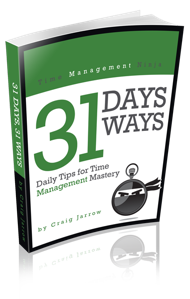
What is Life Friction?
Life friction is the rubbing that occurs in daily life due to poor planning, preparation, and action.
Life friction is all the little things that happen to you due to your disorganization.
Life friction adds stress.
Life friction adds extra work.
It is the trouble that is created when we forget a task or an obligation. (I forgot that report was due today. I forgot about that meeting this afternoon.)
It is the self-inflicted stress that is the result of missing a task or deadline.
It is having to redo a task over again due to poor planning. (You have to make an extra trip to the store because you forgot something. Might have written it down somewhere… but you didn’t have the list with you.)
Complications that arise from leaving something till later. Tasks are harder to complete the longer they sit.
It is the cost or penalty associated with doing something at the last minute. (Late fees? Increased prices?)
Too much Friction?
What happens when two things have lots of friction? Heat is generated. Eventually, if you rub two sticks together it starts a fire.
So, the question is…
Can you have have too much life friction?
Can you catch fire from Life Friction? Yes, you can.
Have you ever seen someone go “up in flames” at work? Or have their person lives destroyed due to disorganization?
It happens.
People lose jobs, and relationships can be destroyed by life friction.
Question: What are you doing to minimize the Life Friction in your daily activities? You can leave a comment by clicking here. I am the author of Time Management Ninja and help individuals and companies reclaim their time to be more productive. As well, I am the author of the book
I am the author of Time Management Ninja and help individuals and companies reclaim their time to be more productive. As well, I am the author of the book 

I think it has as much to do with developing a habitual nature towards certain aspects of our lives as it does with keeping endless lists. The simplest could be to write down a simple thought or idea when it occurs. We’re in the Information Age, and we have immense knowledge of how to record and retrieves thoughts, ideas and to-dos. Even a simple notebook is sufficient for most people. I think the rub comes in when we don’t bother to actually look in the notebook to see what’s going on that we’ve captured.
I think it has as much to do with developing a habitual nature towards certain aspects of our lives as it does with keeping endless lists. The simplest could be to write down a simple thought or idea when it occurs. We’re in the Information Age, and we have immense knowledge of how to record and retrieves thoughts, ideas and to-dos. Even a simple notebook is sufficient for most people. I think the rub comes in when we don’t bother to actually look in the notebook to see what’s going on that we’ve captured.
Planning is essential for mental health. All the way down to scheduling your time (or at least, having your activities on your calendar) and having a tidy and efficient work station (as guilt sets in, I have to get this place in order…) Both having a sense of accomplishment and having things running smoothly contribute to your well-being and reduce stress.
Planning is essential for mental health. All the way down to scheduling your time (or at least, having your activities on your calendar) and having a tidy and efficient work station (as guilt sets in, I have to get this place in order…) Both having a sense of accomplishment and having things running smoothly contribute to your well-being and reduce stress.